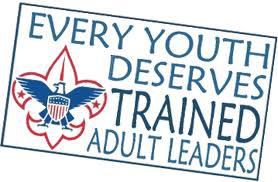Safeguarding Youth Training (SYT)
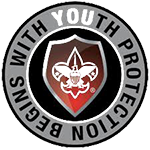
 Scouting America places the greatest importance on creating the most secure environment possible for our youth members. To maintain such an environment, Scouting America developed numerous procedural and leadership selection policies and provides parents and leaders with resources for the Cub Scouts, Scouts BSA, Venturing and Sea Scouts programs.
Scouting America places the greatest importance on creating the most secure environment possible for our youth members. To maintain such an environment, Scouting America developed numerous procedural and leadership selection policies and provides parents and leaders with resources for the Cub Scouts, Scouts BSA, Venturing and Sea Scouts programs.
Safeguarding Youth Training (SYT) is required for all new registered leaders and must be retaken every two years to maintain registration. SYT is designed to help keep our youth safe from abuse. Participants will learn youth protection guidelines, signs of abuse, and how to report suspected abuse. Every registered leader must take Safeguarding Youth Training online at my.scouting.org. A login is required, but anyone may create a user account and view the courses. Registered members of Scouting America may provide their member numbers (as part of the user profile) to receive credit.
Take SYT online
Safeguarding Youth Training is Required
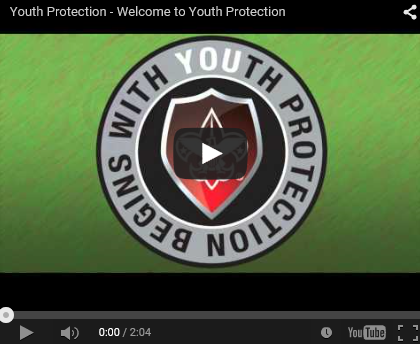
 Safeguarding Youth training is required for all Scouting America registered volunteers and is a joining requirement.
Safeguarding Youth training is required for all Scouting America registered volunteers and is a joining requirement.- Safeguarding Youth training must be taken every year. If a volunteer’s Safeguarding Youth training is not current at the time of annual registration renewal, the volunteer will not be re-registered.
You do not have to be a registered member or have a member ID to take Safeguarding Youth Training.
Youth Protection Protección Juvenil En Español
Cub Scout Leader Training
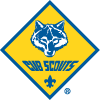
 As a Cub Scout leader, and a mentor for the youth in our community, you will find Scouting to be a fun and exciting program for you and your Scouts. Learn the essential tools needed to succeed in leadership positions and how to deliver a high-quality Cub Scouting program.
As a Cub Scout leader, and a mentor for the youth in our community, you will find Scouting to be a fun and exciting program for you and your Scouts. Learn the essential tools needed to succeed in leadership positions and how to deliver a high-quality Cub Scouting program.
Cub Scout Leader Basic Training
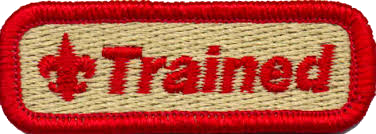
 Cub Scout leaders are considered trained and eligible to wear the official Trained emblem once they have completed:
Cub Scout leaders are considered trained and eligible to wear the official Trained emblem once they have completed:
1. Safeguarding Youth Training online at my.Scouting.org, and
2. Leader Specific Training for their position:
3. Hazardous Weather Training online at my.Scouting.org
Basic Leader Training Course Descriptions: 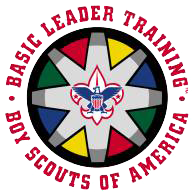
 Cub Scout Leader Training provides the specialized knowledge a new leader needs to assume a leadership role. Cub Scout Leader Training provides the specialized knowledge a new leader needs to assume a leadership role. The Den Leader Position-Specific Training course provides Cub Scout den leaders with the basic information they need to conduct successful den meetings. The Cubmaster and Assistant Position-Specific Training course is intended to provide Cubmasters and assistant Cubmasters with the basic information they need to conduct successful pack meetings. The purpose of the Pack Committee Challenge - Pack Committee Position-Specific Training is to familiarize pack committee members with the various responsibilities of the individual members of the committee as well as the committee as a whole. The goal is to help each pack committee work as a team to improve the Scouting experience for adult and youth members. These trainings are offered online at my.Scouting.org and taught by the district training team.
Cub Scout Leader Training provides the specialized knowledge a new leader needs to assume a leadership role. Cub Scout Leader Training provides the specialized knowledge a new leader needs to assume a leadership role. The Den Leader Position-Specific Training course provides Cub Scout den leaders with the basic information they need to conduct successful den meetings. The Cubmaster and Assistant Position-Specific Training course is intended to provide Cubmasters and assistant Cubmasters with the basic information they need to conduct successful pack meetings. The purpose of the Pack Committee Challenge - Pack Committee Position-Specific Training is to familiarize pack committee members with the various responsibilities of the individual members of the committee as well as the committee as a whole. The goal is to help each pack committee work as a team to improve the Scouting experience for adult and youth members. These trainings are offered online at my.Scouting.org and taught by the district training team.

 Safeguarding Youth Training (SYT) is required for all new registered leaders and must be retaken every two years to maintain registration. SYT is designed to keep our youth safe from abuse. Participants learn youth protection guidelines, signs of abuse, and how to report suspected abuse. Every registered leader must take Safeguarding YouthTraining online. A login is required, but anyone may create a user account and view the courses. Registered members of Scouting America may provide their member numbers (as part of the user profile) to receive credit.
Safeguarding Youth Training (SYT) is required for all new registered leaders and must be retaken every two years to maintain registration. SYT is designed to keep our youth safe from abuse. Participants learn youth protection guidelines, signs of abuse, and how to report suspected abuse. Every registered leader must take Safeguarding YouthTraining online. A login is required, but anyone may create a user account and view the courses. Registered members of Scouting America may provide their member numbers (as part of the user profile) to receive credit.
Hazardous Weather Training. Weather conditions are an important factor in any outdoor Scouting activity. The online training is designed to help participants plan and prepare for hazardous weather.
Additional Cub Scout Training Opportunities

 BALOO (Basic Adult Leader Outdoor Orientation)
BALOO (Basic Adult Leader Outdoor Orientation) is the Cub Scout leader training required for any Cub Scout den or pack outdoor event, including packing camping, overnighters, and den overnighters. BALOO training now comprises two components* – an
online component and a practical, hands-on component. Both components must be completed to qualify as a “Trained” Cub Scout outdoor leader and to receive the BALOO recognition patch. The online component contains introductory and basic information and must be completed before the practical component at
my.scouting.org. The practical component is an overnight that takes about 16 hours to complete.
Find a course near you.
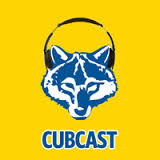
 Cubcast - The podcasts are audio presentations that provide information on topics of interest to Cub Scout leaders.
Cubcast - The podcasts are audio presentations that provide information on topics of interest to Cub Scout leaders.
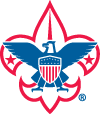
 Supplemental Training Site offers over 20 supplemental training modules, designed to provide orientation beyond the basic training. Each module is a unit of training that can be used as an outline for a group, for personal coaching, or for self-study.
Supplemental Training Site offers over 20 supplemental training modules, designed to provide orientation beyond the basic training. Each module is a unit of training that can be used as an outline for a group, for personal coaching, or for self-study.
Fast Start Training is intended to be taken by leaders immediately following the acceptance of their new role, and is offered online at my.Scouting.org.

 Introduction to Outdoor Leader Skills (IOLS) - During this hands-on course, participants work as patrols. Leaders learn the practical outdoor skills they need to lead Scouts. Upon completion, leaders should feel comfortable teaching Scouts the basic skills required to obtain the First Class rank. This course is recommended for leaders and parents of 5th-grade Webelos. Find a course near you.
Introduction to Outdoor Leader Skills (IOLS) - During this hands-on course, participants work as patrols. Leaders learn the practical outdoor skills they need to lead Scouts. Upon completion, leaders should feel comfortable teaching Scouts the basic skills required to obtain the First Class rank. This course is recommended for leaders and parents of 5th-grade Webelos. Find a course near you.

 Range Officer Training: Scouting America requires all Cub Scout range and target activities to be supervised by a certified range officer. Activities include Cub Scout archery, BB guns, wrist rockets (slingshots), catapults, or rockets. Range officer training covers setting up a range, safety, handling equipment, using a bow stringer, maintaining and storing equipment, and instructing Scouts. Find a course.
Range Officer Training: Scouting America requires all Cub Scout range and target activities to be supervised by a certified range officer. Activities include Cub Scout archery, BB guns, wrist rockets (slingshots), catapults, or rockets. Range officer training covers setting up a range, safety, handling equipment, using a bow stringer, maintaining and storing equipment, and instructing Scouts. Find a course. 

Roundtable is a monthly program that provides leaders with program ideas, updates information on policy, events, and training opportunities, and offers an opportunity to share experiences and enjoy fun and fellowship with other Scouting leaders. 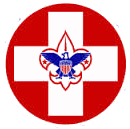

Safety Training: Scouting America puts the utmost importance on the safe and healthy environments for its youth membership. A variety of classes are offered including bullying prevention and intervention, Cyber Chip, first aid and CPR, Safe Swim Defense and Safety Afloat.
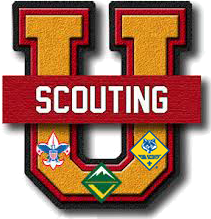
 University of Scouting is a one-day supplemental training with a variety of courses designed to give additional information leaders of packs, troops, crews, and ships. Youth courses are also offered.
University of Scouting is a one-day supplemental training with a variety of courses designed to give additional information leaders of packs, troops, crews, and ships. Youth courses are also offered.
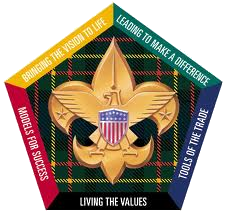
 Wood Badge is a six-day advanced training program that gives participants a great understanding of Scouting aims and methods and highlights personal and unit level leadership development. Topics include team building, problem-solving, communication, conflict resolution and many other useful skills. These skills can be taken directly back to packs, troops, ships, and crews to help leaders guide youth in dynamic Scouting programs.
Wood Badge is a six-day advanced training program that gives participants a great understanding of Scouting aims and methods and highlights personal and unit level leadership development. Topics include team building, problem-solving, communication, conflict resolution and many other useful skills. These skills can be taken directly back to packs, troops, ships, and crews to help leaders guide youth in dynamic Scouting programs.
Scouts BSA Leader Training
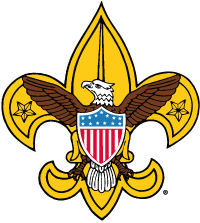
 The training program of Scouting America provides leaders with all the basic tools needed to be successful in your leadership position, along with continual opportunities to refine your skills, as you become comfortable in delivering a quality Scouting program.
The training program of Scouting America provides leaders with all the basic tools needed to be successful in your leadership position, along with continual opportunities to refine your skills, as you become comfortable in delivering a quality Scouting program.
Scouts BSA Leader Basic Training
Scoutmasters and Assistant Scoutmasters are considered trained and eligible to wear the official Trained emblem once they have completed:

 Safeguarding Youth Training online,
Safeguarding Youth Training online,- Scoutmaster Position-Specific Training, and
- Introduction to Outdoor Leader Skills (IOLS)
- Hazardous Weather Training online
Troop Committee Members are considered trained and eligible to wear the official Trained emblem once they have completed:
- Safeguarding Youth Training online, and
- Troop Committee Challenge online
Basic Leader Training Course Descriptions:

 Safeguarding Youth Training (SYT) is required for all new registered leaders, and must be retaken every two years to maintain registration. SYT is designed to keep our youth safe from abuse. Learn youth protection guidelines, signs of abuse, and how to report suspected abuse. Every registered leader must take Safeguarding Youth Training online at my.Scouting.org. Registered members of Scouting America should provide their member numbers (as part of the user profile) to receive credit.
Safeguarding Youth Training (SYT) is required for all new registered leaders, and must be retaken every two years to maintain registration. SYT is designed to keep our youth safe from abuse. Learn youth protection guidelines, signs of abuse, and how to report suspected abuse. Every registered leader must take Safeguarding Youth Training online at my.Scouting.org. Registered members of Scouting America should provide their member numbers (as part of the user profile) to receive credit.

 Scoutmaster Position-Specific Training provides troop leadership with the information and tools they need to lead successful troops. This course is offered online at my.Scouting.org and is taught by the district training team.
Scoutmaster Position-Specific Training provides troop leadership with the information and tools they need to lead successful troops. This course is offered online at my.Scouting.org and is taught by the district training team.
Introduction to Outdoor Leader Skills (IOLS): Working as patrols, this hands-on course provides leaders the practical outdoor skills they need to lead Scouts in the out-of-doors. Upon completion, leaders should feel comfortable teaching Scouts the basic skills required to obtain the First Class rank. Find a course near you.
Troop Committee Challenge helps troop committees work as a team to improve the Scouting experience, helps build the commitment of individual members and cultivates a better troop committee team. This online (my.Scouting.org) course focuses on the core beliefs, aims, and methods of Scouting. Specifically, it helps each committee member learn and identify their role and responsibilities in support of the adult leaders in the unit, to provide a quality troop experience for the Scouts.
Hazardous Weather Training. Weather conditions are an important factor in any outdoor Scouting activity. The online training is designed to help participants plan and prepare for hazardous weather.
Additional Training Opportunities

 Supplemental Training Site offers over 20 supplemental training modules, designed to provide orientation beyond the basic training. Each module is a unit of training that can be used as an outline for a group, for personal coaching, or for self-study.
Supplemental Training Site offers over 20 supplemental training modules, designed to provide orientation beyond the basic training. Each module is a unit of training that can be used as an outline for a group, for personal coaching, or for self-study.
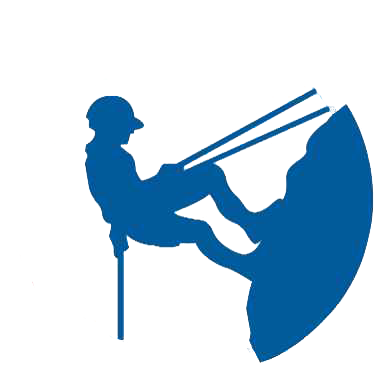
 Climbing: The climbing committee offers several different levels of climbing and rappelling courses that begin with a tower course at Tellepsen Scout Camp and finishes with a real rock course at Enchanted Rock State Natural Area.
Climbing: The climbing committee offers several different levels of climbing and rappelling courses that begin with a tower course at Tellepsen Scout Camp and finishes with a real rock course at Enchanted Rock State Natural Area.

 Conservation: The conservation committee offers several courses, including Leave No Trace, Outdoor Ethics and Project Wild.
Conservation: The conservation committee offers several courses, including Leave No Trace, Outdoor Ethics and Project Wild. 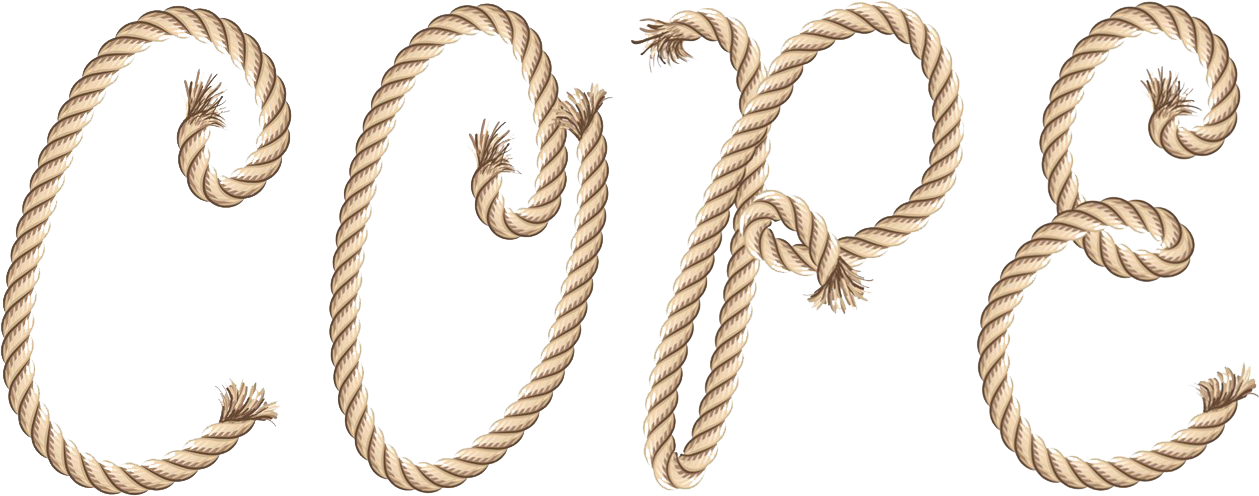

COPE (Challenging Outdoor Personal Experience) facilitator training teaches how to help COPE participants climb, swing, balance, jump, and think of solutions to a variety of activities.

 Fast Start Training is intended to be taken by leaders immediately following the acceptance of their new role, and is offered online at my.Scouting.org.
Fast Start Training is intended to be taken by leaders immediately following the acceptance of their new role, and is offered online at my.Scouting.org.



 Roundtable is a monthly program that provides leaders with program ideas, updates information on policy, events, and training opportunities, and offers an opportunity to share experiences and enjoy fun and fellowship with other Scouting leaders.
Roundtable is a monthly program that provides leaders with program ideas, updates information on policy, events, and training opportunities, and offers an opportunity to share experiences and enjoy fun and fellowship with other Scouting leaders.

 Safety Training: Scouting America puts the utmost importance on the safe and healthy environments for its youth membership. A variety of classes are offered including bullying prevention and intervention, Cyber Chip, first aid and CPR, Climb on Safely, Trek Safely, Safe Swim Defense and Safety Afloat.
Safety Training: Scouting America puts the utmost importance on the safe and healthy environments for its youth membership. A variety of classes are offered including bullying prevention and intervention, Cyber Chip, first aid and CPR, Climb on Safely, Trek Safely, Safe Swim Defense and Safety Afloat.
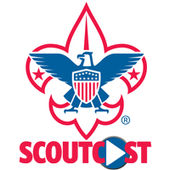
 Scoutcast is a monthly podcast that provides information on topics of interest to Scouts BSA leaders.
Scoutcast is a monthly podcast that provides information on topics of interest to Scouts BSA leaders.

 Range and Target Activities: The range and target activities committee offers various trainings, including range master, Range Safety Officer (RSO), USA Archery, and NRA Instructor training for pistol, rifle, muzzleloader, and shotgun. This certification is required to use any of the council's ranges or to have troop and district programs.
Range and Target Activities: The range and target activities committee offers various trainings, including range master, Range Safety Officer (RSO), USA Archery, and NRA Instructor training for pistol, rifle, muzzleloader, and shotgun. This certification is required to use any of the council's ranges or to have troop and district programs.

 University of Scouting is a one-day supplemental training with a variety of courses designed to give additional information for pack, troop, crew and ship leaders. Youth courses are also offered.
University of Scouting is a one-day supplemental training with a variety of courses designed to give additional information for pack, troop, crew and ship leaders. Youth courses are also offered.

 Wood Badge is a six-day advanced training program which gives participants a great understanding of Scouting aims and methods and highlights personal and unit level leadership development. Topics include team building, problem-solving, communication, conflict resolution and many other useful skills. These skills can be taken directly back to packs, troops, ships, and crews to help leaders guide youth in dynamic Scouting programs.
Wood Badge is a six-day advanced training program which gives participants a great understanding of Scouting aims and methods and highlights personal and unit level leadership development. Topics include team building, problem-solving, communication, conflict resolution and many other useful skills. These skills can be taken directly back to packs, troops, ships, and crews to help leaders guide youth in dynamic Scouting programs.
Venturing Leader Training
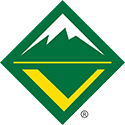
 The training programs of Scouting America provides leaders with all the basic tools needed to be successful in their leadership position, along with continual opportunities to refine your skills as you become comfortable in delivering a quality program.
The training programs of Scouting America provides leaders with all the basic tools needed to be successful in their leadership position, along with continual opportunities to refine your skills as you become comfortable in delivering a quality program.
Venturing Leader Basic Training
Venturing leaders are considered trained and eligible to wear the official Trained emblem once they have completed:

 Safeguarding Youth Training online at my.Scouting.org, and
Safeguarding Youth Training online at my.Scouting.org, and- Venturing Advisor Specific-Position Training
- Hazardous Weather Training online
Venturing Leader Basic Training Course Descriptions:

 Safeguarding Youth Training (SYT) is required for all new registered leaders and must be retaken every two years to maintain registration. SYT is designed to keep our youth safe from abuse. You will learn youth protection guidelines, signs of abuse, and how to report suspected abuse. Every registered leader must take Safeguarding Youth Training online at my.Scouting.org. Registered members of Scouting America should provide their member numbers (as part of the user profile) to receive credit.
Safeguarding Youth Training (SYT) is required for all new registered leaders and must be retaken every two years to maintain registration. SYT is designed to keep our youth safe from abuse. You will learn youth protection guidelines, signs of abuse, and how to report suspected abuse. Every registered leader must take Safeguarding Youth Training online at my.Scouting.org. Registered members of Scouting America should provide their member numbers (as part of the user profile) to receive credit.


Venturing Advisor Specific-Position Training provides crew leadership with the information and tools they need to lead successful crew. VLST is offered at University of Scouting or find a course.
Hazardous Weather Training. Weather conditions are an important factor in any outdoor Scouting activity. The online training is designed to help participants plan and prepare for hazardous weather.
Additional Leader Training Opportunities
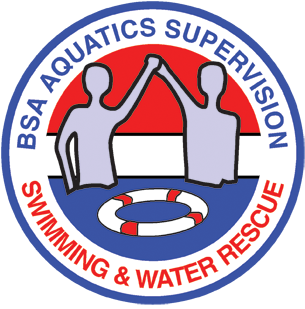
 Aquatics Training courses such as Paddle Craft Safety and Kayaking training teach the skills, as well as the knowledge, needed for a unit leader to confidently supervise canoeing or kayaking excursions on flat water.
Aquatics Training courses such as Paddle Craft Safety and Kayaking training teach the skills, as well as the knowledge, needed for a unit leader to confidently supervise canoeing or kayaking excursions on flat water.

 Supplemental Training Site offers over 20 supplemental training modules, designed to provide orientation beyond the basic training. Each module is a unit of training that can be used as an outline for a group, for personal coaching, or for self-study.
Supplemental Training Site offers over 20 supplemental training modules, designed to provide orientation beyond the basic training. Each module is a unit of training that can be used as an outline for a group, for personal coaching, or for self-study.

 Climbing: The climbing committee offers several different levels of climbing and rappelling courses that begin with a tower course at El Rancho Cima and finishes with a real rock course at Enchanted Rock State Natural Area.
Climbing: The climbing committee offers several different levels of climbing and rappelling courses that begin with a tower course at El Rancho Cima and finishes with a real rock course at Enchanted Rock State Natural Area.

 Conservation: The conservation committee offers several courses, including Leave No Trace, Outdoor Ethics and Project Wild.
Conservation: The conservation committee offers several courses, including Leave No Trace, Outdoor Ethics and Project Wild.
 COPE (Challenging Outdoor Personal Experience) facilitator training teaches how to help COPE participants climb, swing, balance, jump, and think of solutions to a variety of activities.
COPE (Challenging Outdoor Personal Experience) facilitator training teaches how to help COPE participants climb, swing, balance, jump, and think of solutions to a variety of activities. 

Fast Start Training is intended to be taken by leaders immediately following the acceptance of their new role, and is offered online at my.Scouting.org.

 Introduction to Outdoor Leader Skills (IOLS) - During this hands-on course, participants work as patrols. Leaders learn the practical outdoor skills they need to lead Scouts. Upon completion, leaders should feel comfortable teaching Scouts the basic skills required to obtain the First Class rank. Find a course near you.
Introduction to Outdoor Leader Skills (IOLS) - During this hands-on course, participants work as patrols. Leaders learn the practical outdoor skills they need to lead Scouts. Upon completion, leaders should feel comfortable teaching Scouts the basic skills required to obtain the First Class rank. Find a course near you.


 Roundtable is a monthly program that provides leaders with program ideas, updates information on policy, events, and training opportunities, and offers an opportunity to share experiences and enjoy fun and fellowship with other Scouting leaders.
Roundtable is a monthly program that provides leaders with program ideas, updates information on policy, events, and training opportunities, and offers an opportunity to share experiences and enjoy fun and fellowship with other Scouting leaders.

 Safety Training: Scouting America puts the utmost importance on the safe and healthy environments for its youth membership. A variety of classes are offered including bullying prevention and intervention, Cyber Chip, first aid and CPR, Climb on Safely, Trek Safely, Safe Swim Defense and Safety Afloat.
Safety Training: Scouting America puts the utmost importance on the safe and healthy environments for its youth membership. A variety of classes are offered including bullying prevention and intervention, Cyber Chip, first aid and CPR, Climb on Safely, Trek Safely, Safe Swim Defense and Safety Afloat.


Scoutcast is a monthly podcast that provides information on topics of interest to leaders.

 Range and Target Activities: The range and target activities committee offers various trainings, including range master, Range Safety Officer (RSO), USA Archery, and NRA Instructor training for pistol, rifle, muzzleloader, and shotgun. This certification is required to use any of the council's ranges or to have troop and district programs.
Range and Target Activities: The range and target activities committee offers various trainings, including range master, Range Safety Officer (RSO), USA Archery, and NRA Instructor training for pistol, rifle, muzzleloader, and shotgun. This certification is required to use any of the council's ranges or to have troop and district programs.

 University of Scouting is a one-day supplemental training in February, with a variety of courses designed to give additional information for pack, troop, crew and ship leaders. Youth courses are also offered.
University of Scouting is a one-day supplemental training in February, with a variety of courses designed to give additional information for pack, troop, crew and ship leaders. Youth courses are also offered.

 Wood Badge is a six-day advanced training program which gives participants a great understanding of Scouting aims and methods and highlights personal and unit level leadership development. Topics include team building, problem-solving, communication, conflict resolution and many other useful skills. These skills can be taken directly back to packs, troops, ships, and crews to help leaders guide youth in dynamic Scouting programs.
Wood Badge is a six-day advanced training program which gives participants a great understanding of Scouting aims and methods and highlights personal and unit level leadership development. Topics include team building, problem-solving, communication, conflict resolution and many other useful skills. These skills can be taken directly back to packs, troops, ships, and crews to help leaders guide youth in dynamic Scouting programs.

 Youth Training courses include Chaplain's Aide Training, Den Chief Training, National Youth Leader Training (NYLT), Troop Guide Conference.&
Youth Training courses include Chaplain's Aide Training, Den Chief Training, National Youth Leader Training (NYLT), Troop Guide Conference.&
Sea Scouts Leader Basic Training
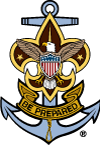
 The training programs of Scouting America provides leaders with the basic tools needed to be successful in their leadership position, along with continual opportunities to refine your skills as you become comfortable in delivering a quality program.
The training programs of Scouting America provides leaders with the basic tools needed to be successful in their leadership position, along with continual opportunities to refine your skills as you become comfortable in delivering a quality program.
Sea Scouts Leader Basic Training
Sea Scout Leaders are considered trained once they have completed:

 Safeguarding Youth Training online at my.Scouting.org
Safeguarding Youth Training online at my.Scouting.org- Sea Scout Adult Leader Basic Training
- Hazardous Weather Training online
Sea Scouts Leader Basic Training Course Descriptions:

 Safeguarding Youth Training (SYT) is required for all new registered leaders and must be retaken every two years to maintain registration. SYT is designed to keep our youth safe from abuse. Participants will learn youth protection guidelines, signs of abuse, and how to report suspected abuse. Every registered leader must take Safeguarding Youth Training online at my.Scouting.org. Registered members of Scouting America should provide their member numbers (as part of the user profile) to receive credit.
Safeguarding Youth Training (SYT) is required for all new registered leaders and must be retaken every two years to maintain registration. SYT is designed to keep our youth safe from abuse. Participants will learn youth protection guidelines, signs of abuse, and how to report suspected abuse. Every registered leader must take Safeguarding Youth Training online at my.Scouting.org. Registered members of Scouting America should provide their member numbers (as part of the user profile) to receive credit.

 Sea Scout Adult Leader Basic Training provides the nuts and bolts of organizing, running, and growing the Sea Scout program. SSALBT is offered at Sea Scout Academy, University of Scouting, or on special request. Contact the council Sea Scouts committee to schedule as course. Find a course.
Sea Scout Adult Leader Basic Training provides the nuts and bolts of organizing, running, and growing the Sea Scout program. SSALBT is offered at Sea Scout Academy, University of Scouting, or on special request. Contact the council Sea Scouts committee to schedule as course. Find a course.
Hazardous Weather Training. Weather conditions are an important factor in any outdoor Scouting activity. The online training is designed to help participants plan and prepare for hazardous weather.
Required courses to lead water activities
The following training courses are required in order to conduct water activities:
- Safety Afloat online at my.Scouting.org (every 2 years)
- Safe Swim Defense online at my.Scouting.org (every 2 years)
- Weather Hazard Training online at my.Scouting.org (every 2 years)
- Trek Safely online (required for a long cruise or extensive trek)
- First Aid from American Red Cross or American Heart Association (every 2 years)
- CPR from American Red Cross or American Heart Association (adult, youth and infant, every 1 to 2 years)AED from American Red Cross or American Heart Association (every 1 to 2 years)
- National Association of State Boating Laws Administrators (NASBLA) approved state boarder course
Recommended Supplemental Training
Technical boating training is offered by the United States Power Squadrons (USPS) and the United States Coast Guard Auxiliary (USCGA). We strongly recommend that you meet the skill standards of one of these two organizations, or that of a Coast Guard licensed deck officer.
- Seabadge is the advanced leadership and management course for leaders of the Sea Scouting program.
- Seabadge Underway is a three full day or two weekend practical leadership laboratory typically using a 40-foot power or sail boat. Participants function as Sea Scout youth with instructors in the adult role. Participants will be able to see how the ideal Sea Scout ship should operate. Participants must already have the Ordinary and most of the Able Piloting skills and pass a test on seamanship and a test on piloting.
- Wood Badge is a six-day advanced leadership training for leaders of all Scouting programs.
- United States Power Squadrons. USPS (www.usps.org) offers many courses.
- NASBLA approved course mentioned above under the title “America's Boating Course.”
- Seamanship introduces many seamanship topics, expands on the NASBLA course content.
- Sailing teaches the basics of sailing terminology, procedures and techniques.
- Piloting teaches chart reading, position plotting, dead reckoning, and GPS navigation.
- USPS offers Advanced Piloting and several offshore navigation courses that include celestial. They also offer many two-hour seminars on specific topics that will be of use to Sea Scouts and leaders.
- United States Coast Guard Auxiliary. USCGA offers several courses. Their format is somewhat different than USPS. http://cgaux.org/boatinged
- NASBLA approved course mentioned above under the title “About Boating Safety.”
- Boating Skills and Seamanship is designed for power boaters and covers how to handle a power boat and many basic seamanship topics. This course expands on the NASBLA content.
- Sailing Skills and Seamanship is designed for sail boaters and covers how to handle a sailboat, terminology, procedures, techniques. This course expands on the NASBLA content.
- Weekend Navigator covers piloting topics based on chart reading, position plotting, dead reckoning, and GPS navigation.
- United States Coast Guard. Many schools offer a Coast Guard captain's license. The “Six-Pack” license usually takes 40 hours or so of instruction. Scouters who operate a vessel requiring a license must acquire that license before operating in command.
Additional Training Courses
What to Bring to Training
What to wear to training. Participants typically wear their field uniform (Scout uniform) or activity uniform (Scout t-shirt). If you don’t have a uniform, wear comfortable clothes (e.g., jeans). Indoor training facilities vary, so be prepared for warm and cold rooms.
BALOO: Basic Adult Leader Outdoor Orientation (C32)

 BALOO is the Cub Scout leader training required for any Cub Scout den or pack outdoor event, including packing camping, overnighters and Webelos den overnighters. BALOO training is now comprised of two components* – an online component, and a practical, hands-on component. Both components must be completed to qualify as a “Trained” Cub Scout outdoor leader and to receive the BALOO recognition patch. The online component contains introductory and basic information and must be completed prior to the practical component at my.scouting.org. The practical component is an overnight that takes about 16-hours to complete.
BALOO is the Cub Scout leader training required for any Cub Scout den or pack outdoor event, including packing camping, overnighters and Webelos den overnighters. BALOO training is now comprised of two components* – an online component, and a practical, hands-on component. Both components must be completed to qualify as a “Trained” Cub Scout outdoor leader and to receive the BALOO recognition patch. The online component contains introductory and basic information and must be completed prior to the practical component at my.scouting.org. The practical component is an overnight that takes about 16-hours to complete.
Bring: Health and Medical Record (Part A & B for all Scouting events), tent, sleeping bag, sleeping pad or mattress, sleeping attire, soap, washcloth, towel, hat, bug spray, camp chair, mess kit (knife, fork, spoon, bowl/plate, coffee cup in a mesh bag), camp chair, note-taking materials, appropriate clothes for weather [rain gear, jacket, field uniform (Scout uniform) or activity uniform (Scouting-t-shirt) or comfortable clothes], change of clothes, closed-toed tennis shoes or boots for short hike, and the Cub Scout six essentials (first-aid kit, refillable water bottle, flashlight with extra batteries, trail food, sun protection, whistle). Optional gear: sunglasses, camera, earplugs. Find courses near you.
Meals: For Saturday to Sunday courses: eat breakfast before arriving. For Friday to Saturday classes: eat dinner before arriving. The class typically includes three meals.
IOLS: Introduction to Outdoor Leader Skills (S11)
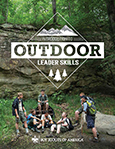
 Working as patrols, this hands-on course provides adult leaders the practical outdoor skills they need to lead Scouts in the out-of-doors. Upon completion, leaders should feel comfortable teaching Scouts the basic skills required to obtain the First Class rank. Topics covered: • Campsite Selection • Ropes – Whipping, Tying, and Lashing • Wood Tools – Knife, Camp Saw, and Ax • Fire Site Preparation and Building • Cooking • First Aid • Plant and Animal Identification • Packing and Hiking Techniques • Map and Compass • Leave No Trace. The training encompasses a weekend (16 hours of instruction). Find courses near you.
Working as patrols, this hands-on course provides adult leaders the practical outdoor skills they need to lead Scouts in the out-of-doors. Upon completion, leaders should feel comfortable teaching Scouts the basic skills required to obtain the First Class rank. Topics covered: • Campsite Selection • Ropes – Whipping, Tying, and Lashing • Wood Tools – Knife, Camp Saw, and Ax • Fire Site Preparation and Building • Cooking • First Aid • Plant and Animal Identification • Packing and Hiking Techniques • Map and Compass • Leave No Trace. The training encompasses a weekend (16 hours of instruction). Find courses near you.
Personal Items To Bring: Health and Medical Record (Part A & B for all Scouting events). Clothes: field uniform, activity uniform (Scout t-shirt) or comfortable clothes, closed-toed shoes (boots or tennis shoes), jacket, rain gear. Scouting ten essentials: pocket knife, first aid kit, extra clothes, rain gear, refillable water bottle, flashlight or headlamp with extra batteries, trail food, match and fire starters, sun protection, map and compass. Personal Gear: tent, ground cloth, camp chair, sleeping bag or blanket, sleeping pad or cot, mess kit (knife, fork, spoon, bowl/plate, coffee cup in a mesh bag), bug repellant, sunscreen, personal hygiene products (e.g., toothpaste, deodorant), note-taking materials, backpack, personal medications. Recommended: Field Book, Troop Leader Guidebook, Scout Handbook. Optional gear: sunglasses, camera, earplugs, gloves for saw and ax demonstration.
Meals: For Saturday to Sunday courses: eat breakfast before arriving. For Friday to Saturday classes: eat dinner before arriving. The class typically includes three meals.
Training Resources
